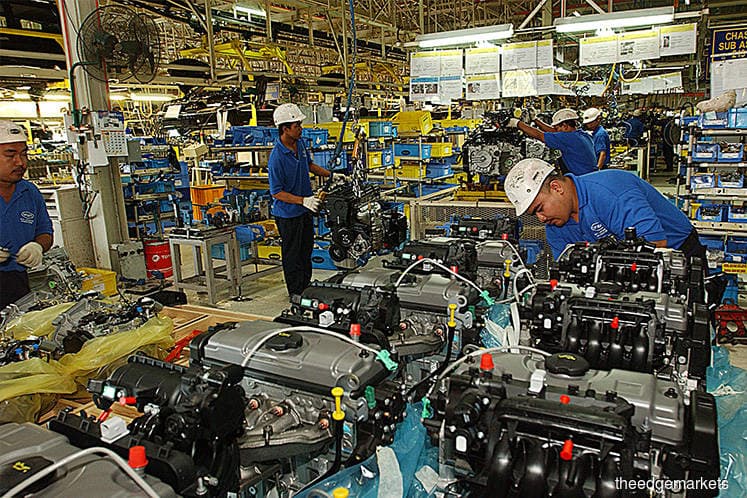
KUALA LUMPUR (Sept 3): The IHS Markit Malaysia Manufacturing Purchasing Managers’ Index (PMI) fell to 47.4 in August 2019 from 47.6 in the preceding month amid tough demand conditions and rising cost pressures.
IHS Markit said in a statement today that at current levels, the PMI is broadly indicative of annual GDP growth of approximately 4.5% for the country based on historical comparisons.
"Latest PMI data highlighted some of the challenges facing Malaysian manufacturers at the midway point of the third quarter, with the survey signalling tough demand conditions and rising cost pressures. Nevertheless, the outlook improved to the most optimistic for nearly six years, encouraging firms to expand their workforces for the first time in three months," IHS Markit said.
IHS Markit said its Malaysia Manufacturing PMI is compiled from responses to monthly questionnaires sent to purchasing managers in a panel of around 400 manufacturers.
The PMI is a weighted average of five indices comprising new orders, output, employment, suppliers’ delivery times and stocks of purchases, IHS Markit said. The indices vary between 0 and 100, with a reading above 50 indicating an overall increase compared to the previous month, and below 50 an overall decrease, according to IHS Markit.
"Although the seasonally adjusted output index dipped in August, the fall was only fractional. Analysis of comparable historical official data on Malaysian manufacturing suggests that, at current levels, the survey’s output index is consistent with annual production growth of just below 4%. According to anecdotal evidence, new product launches had supported output during August.
"The level of new work received from external markets stalled in the latest survey period, contributing to sustained weakness in the new orders index. Challenging demand conditions persisted in August, with intense competitive pressures, reduced workloads from clients in other key export markets and global trade war worries reported as drags on sales," IHS Markit said.
IHS Markit said the latest survey data pointed to higher operating costs amid reports of currency fluctuations, rising commodity prices and shortages of certain raw materials.
"Firms responded to margin pressures by raising output charges in August at the quickest pace in nine months," IHS Markit said.